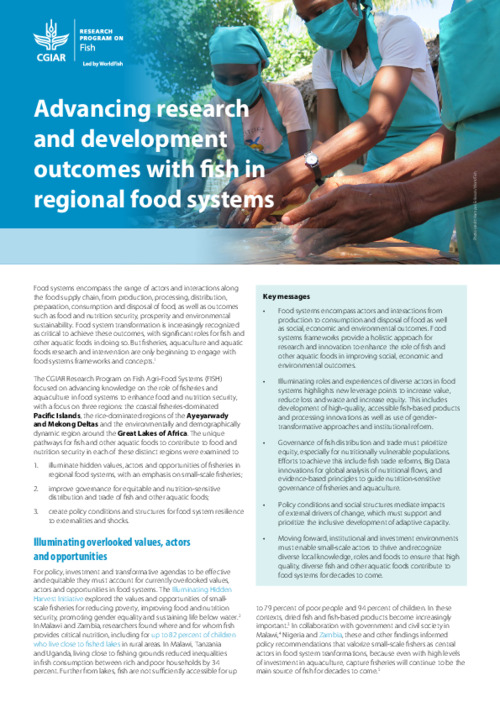Advancing research and development outcomes with fish in regional food systems

Food systems encompass actors and interactions from production to consumption and disposal of food as well as social, economic and environmental outcomes. Food systems frameworks provide a holistic approach for research and innovation to enhance the role of fish and other aquatic foods in improving social, economic and environmental outcomes.
Illuminating roles and experiences of diverse actors in food systems highlights new leverage points to increase value, reduce loss and waste and increase equity. This includes development of high-quality, accessible fish-based products and processing innovations as well as use of gender-transformative approaches and institutional reform.
Governance of fish distribution and trade must prioritize equity, especially for nutritionally vulnerable populations. Efforts to achieve this include fish trade reforms, Big Data innovations for global analysis of nutritional flows, and evidence-based principles to guide nutrition-sensitive governance of fisheries and aquaculture.
Policy conditions and social structures mediate impacts of external drivers of change, which must support and prioritize the inclusive development of adaptive capacity.
Moving forward, institutional and investment environments must enable small-scale actors to thrive and recognize diverse local knowledge, roles and foods to ensure that high quality, diverse fish and other aquatic foods contribute to food systems for decades to come.
Permalink
Date Available
Type
Publisher
Copyright
CC-BY-NC-4.0
Research Themes
Language